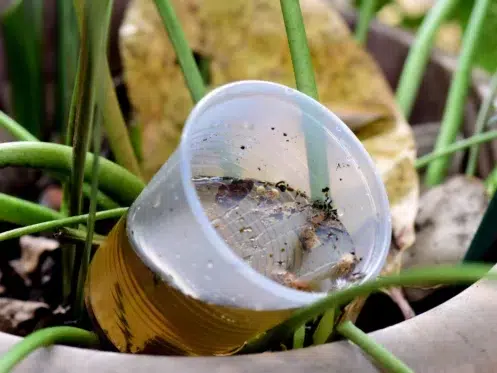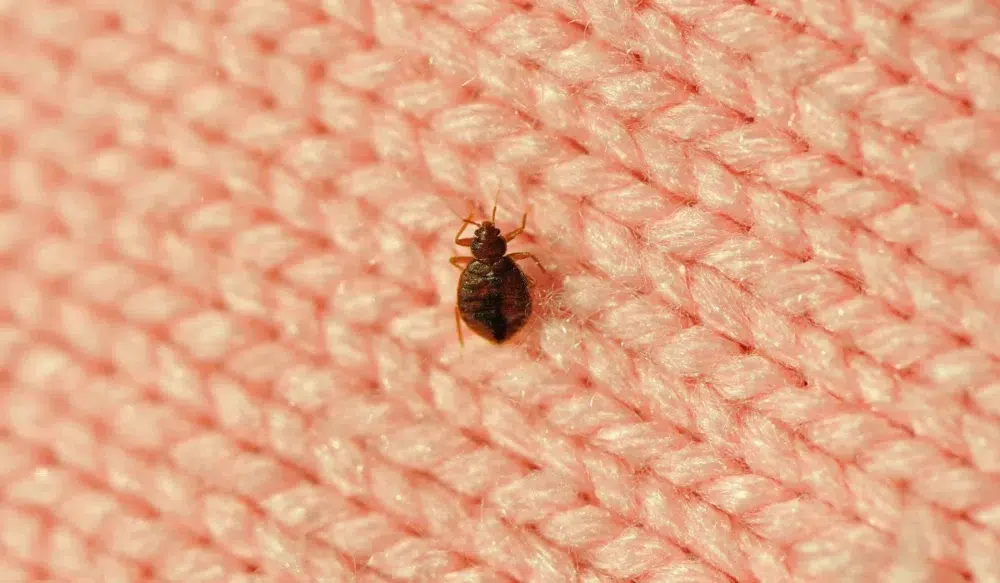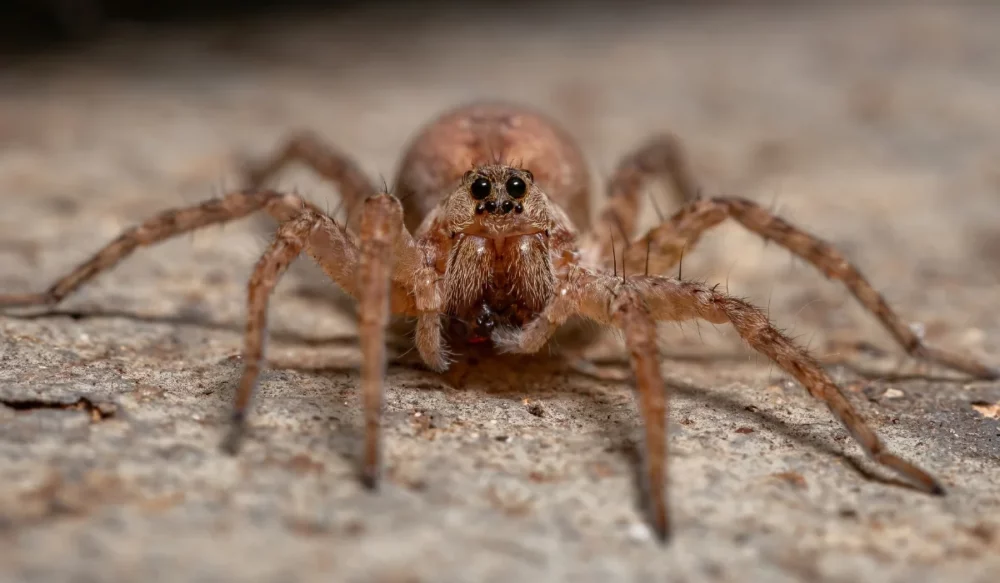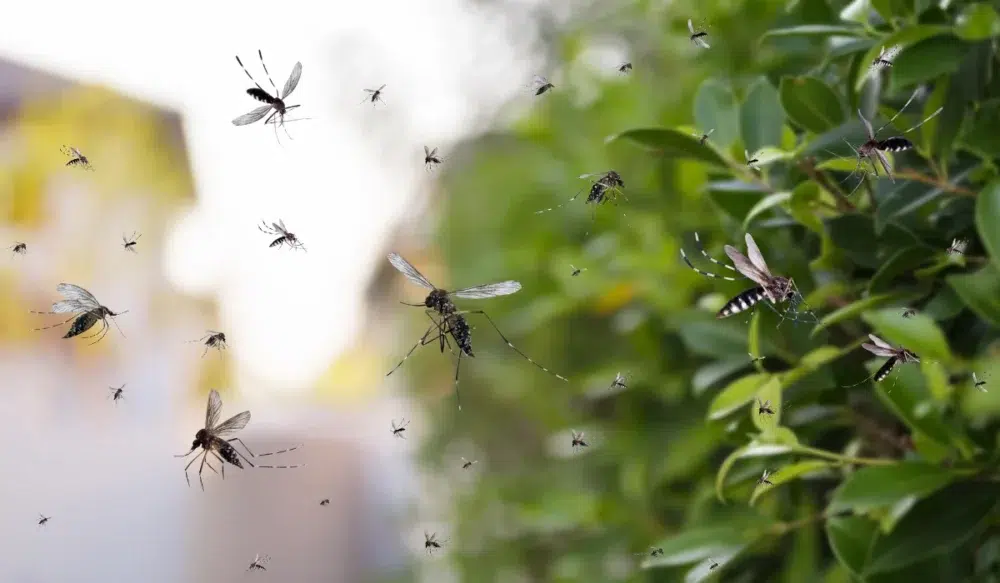Mosquitoes are more than just annoying; they carry health risks, and their bites can make time outdoors miserable.
In Arizona, especially during monsoon season, mosquitoes thrive in yards with even small pockets of standing water. While synthetic options like DEET and other store-bought bug sprays are standard, many homeowners in Arizona are seeking safer, natural mosquito repellents that won’t harm pets, children, or the environment.
If you live in Phoenix, Tucson, Chandler, or anywhere else in the Valley, you don’t have to settle for itchy evenings on the patio. There are effective natural options that help keep mosquitoes away while also making your yard more enjoyable.
Key Takeaways
- Arizona’s irrigation and monsoon season create perfect breeding conditions for mosquitoes.
- Essential oils such as citronella, peppermint, and lemongrass provide natural mosquito control.
- Eliminating standing water is the most effective way to reduce mosquito breeding.
- Natural repellents may require more frequent use but offer a safer alternative to synthetic sprays.
Why Mosquitoes Are a Problem in Arizona
Arizona’s dry climate doesn’t mean we’re safe from mosquitoes. Thanks to irrigation systems and monsoon rains, mosquitoes find plenty of places to breed.
Two of the most common mosquito species in this area, Aedes aegypti and Culex, are known to transmit diseases such as West Nile, Zika, and dengue. These mosquitoes lay eggs in small amounts of water found in birdbaths, clogged gutters, or even bottle caps. Controlling them starts with understanding what attracts them and what naturally repels them.
How Natural Mosquito Repellents Work
Most natural mosquito repellents rely on strong-smelling oils to confuse a mosquito’s sense of smell. When used correctly, essential oils such as peppermint, citronella, and lemongrass interfere with the cues that mosquitoes use to locate human hosts.
The Environmental Protection Agency (EPA) has even registered certain plant-based ingredients, like oil of lemon eucalyptus, as effective against mosquitoes.
To use essential oils safely, they should be diluted with a carrier oil, such as jojoba or coconut oil, before applying them to the skin. This not only reduces irritation but also helps the oil last longer on your body.
While natural solutions may require more frequent reapplication compared to products with DEET or picaridin, they offer a gentler alternative with fewer synthetic ingredients.
Effective Natural Oils for Mosquito Control
Citronella oil is one of the most recognized natural options and is often found in outdoor candles and sprays. It masks the human scent that mosquitoes rely on, making it more difficult for them to locate you. In Arizona yards, placing citronella candles on patios or near seating areas can help reduce mosquito presence during dusk hours.
Peppermint oil is another effective option, known not just for repelling mosquitoes but also for its cooling sensation and strong scent. When applied appropriately, it can serve as both a natural insect repellent and a mild tick repellent. Many Arizona residents keep small spray bottles with peppermint oil and water handy when spending time outside.
Lemongrass oil contains citral and geraniol, two compounds known for their ability to deter mosquitoes. In fact, lemongrass plants themselves are a great addition to Arizona landscaping. They thrive in our climate and emit a pleasant scent that repels mosquitoes.
Other helpful options include lavender oil and cinnamon oil. Lavender’s calming scent makes it a popular addition to natural lotions. At the same time, cinnamon oil is thought to have mild larvicidal effects that can reduce mosquito breeding when used in water features.
Yard Habits That Help Keep Mosquitoes Away
Using sprays and oils won’t help if your yard offers mosquitoes perfect breeding spots. Removing standing water is the most essential step in long-term mosquito control. Check for pooled water in irrigation boxes, plant saucers, and birdbaths, especially after summer storms. Even a small puddle can support hundreds of mosquito eggs.
If you’re using any kind of water feature or decorative container, clean it regularly and consider adding mosquito dunks that use natural bacteria instead of pesticides. These are a good fit for homes in Phoenix and Scottsdale, where landscaped yards often include water elements.
Are Plant-Based Products Effective?
While no solution is foolproof, plant-based sprays made with natural ingredients can work well when used consistently. Look for products with clear labels that list active ingredients like citronella, lemongrass, or oil of lemon eucalyptus. These tend to be less irritating to sensitive skin and are often approved by the EPA for use as insect repellent.
If you choose a commercial mosquito repellent, be sure to read the label carefully; some may contain synthetic additives, even when marketed as natural. If you’re unsure which type to use or if mosquitoes seem especially persistent in your area, it may be worth consulting a local pest control expert.
Natural Doesn’t Mean Weak
The Centers for Disease Control and Prevention (CDC) and the Environmental Protection Agency both acknowledge that some natural repellents can be effective, particularly when used in conjunction with other prevention methods. Combining personal repellents with thoughtful landscaping and good yard maintenance provides a solid defense.
In areas like Chandler or Mesa, where mosquitoes are especially active near washes and retention basins, natural repellents can be most effective when paired with long sleeves, screened patios, and nighttime lighting that doesn’t attract bugs.
Should You Go Completely Chemical-Free?
Choosing to avoid synthetic insecticides is a personal decision. While DEET and picaridin are effective, they aren’t necessary for everyone. If your mosquito issue is moderate and you prefer a gentler approach, natural products may be enough.
Keep in mind that natural repellents tend to wear off faster, especially in the Arizona heat. Reapply regularly, especially in the early morning and evening when mosquitoes are most active. Keep a bug spray on hand during outdoor events and consider applying a combination of natural lotions and sprays for better coverage.
When Natural Remedies Aren’t Enough, We’re Here to Help
If you’ve tried natural mosquito repellents but still notice bites around your yard, you’re not alone. Arizona’s unique environment presents a challenge to mosquito control, even with the most effective prevention measures.
That’s where Green Home Pest Control comes in. As a local company, we understand which species are most active in Phoenix, Chandler, Tucson, and the surrounding areas, and how to manage them effectively. Just give us a call and we will be there.
We use targeted, family-safe methods that support your efforts without relying on harsh treatments. Whether you need a one-time service or ongoing support, we’re here to help you enjoy your outdoor space again, bite-free and naturally protected.
FAQs
What is the most effective natural mosquito repellent for Arizona homes?
Citronella oil is one of the most effective natural mosquito repellents, mainly when used in sprays or candles. Peppermint and lemongrass oils are also commonly used by residents of Arizona.
Do natural repellents protect against mosquito-borne illnesses like West Nile or Zika?
Natural repellents can help reduce mosquito bites, but they must be applied consistently and frequently. For areas with high risk, use EPA-approved plant-based repellents with proven active ingredients.
Can I plant citronella or lemongrass in my yard to control mosquitoes?
Yes. Citronella and lemongrass thrive in Arizona and provide mild mosquito-repelling benefits. While they won’t eliminate mosquitoes alone, they can support other mosquito control efforts.




